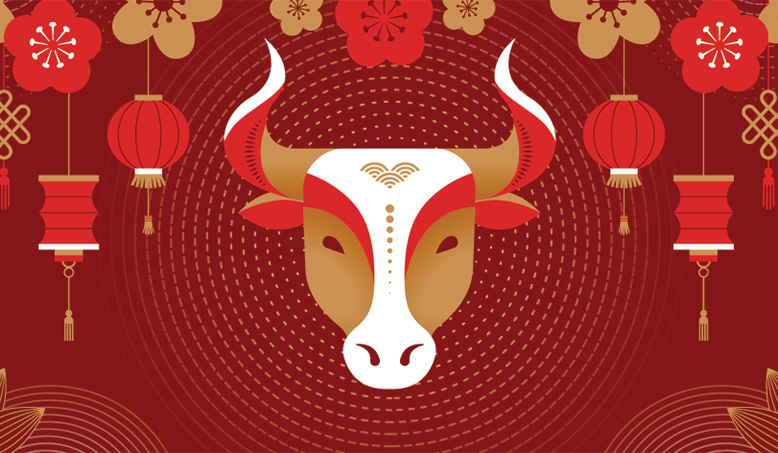Although many people across the world celebrate the start of a new year on January 1, in China, the real 2021 doesn’t start until there is a new moon. In China, people usually recognize the lunar calendar based on the moon phases’ changing cycle, so it has a one-month delay compared to our current calendar. Because it depends on the moon, the date of Chinese New Year actually changes each year, but it will always fall sometime between 21 January and 20 February. In addition, China identifies the new year in relation to the 12 symbolic animals, and it creates a cycle for every 12 years. For 2021, it will be Year of the Ox (牛年).
The 3-4 weeks before the Chinese New Year is the busiest time for every family to prepare and celebrate. At some corners of the street, you can see people setting up different stalls to sell the red decorations logos and other cultural items to celebrate the New Year.
Preparations
Normally, you will need the following to create the best atmosphere for the Chinese New Year:
- Fireworks: Fireworks and crackers can enhance happiness during the New Year. However, there are strict bans in some cities, so they don’t let off too many fireworks…
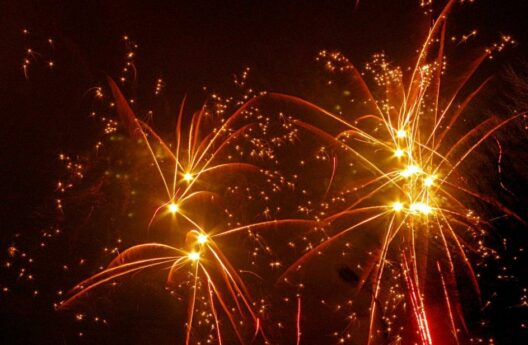

- Tobacco and alcohol gifts: During the New Year, relatives often visit, and sometimes appropriate toasts and cigarettes shared with those elders can show politeness and enthusiasm.
You will also see that most families will prepare some special gifts that represent their unique meanings to the Chinese New Year. For example, the antithetical couplets are one of the traditional cultures in China. They are antithetical sentences written on paper to convey the blessing and other positive meanings for a better year. Chinese people will typically use words like “ 如意,顺心,吉祥” or other meaningful words to intense the willingness of better things to come.


The “Tie Fu” (贴福) culture is also one of the essential steps for Chinese New Year: sticking the “福” word on the window or door to welcome the next year’s happiness. Some families will also stick a picture of god in front of the door. Although it’s a little superstitious, this symbolizes that bad things will not “come” to the house, and everyone will be happy and reunite with each other.
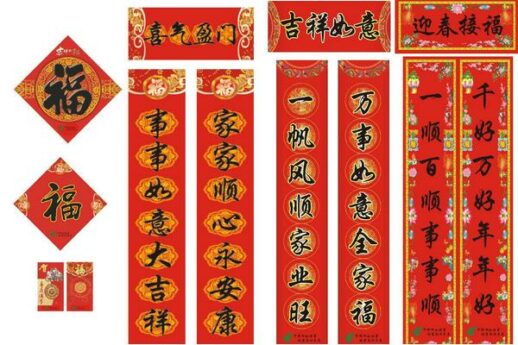

The day before
When the actual Chinese New Year is coming, it is required for every person to cut their hair, clean their clothes, and wear all red to celebrate the New Year’s luck. It is called “辞旧迎新”, meaning for people to not just clean themselves, but to also clean the house. It is one of the most traditional cultural gestures to ward off evil spirits and any disasters, to say farewell to the old, and welcome the new with auspicious blessings, prayers, and desires. At night, the stove should be cleaned and removed to greet the first morning of New Year’s Eve. It is also necessary to prepare the small cups of wine, meat, candy, sugar cane, rice, and other materials on the table as tributes to the gods. Depending on different places, there may be extra festivals or cultures for the native groups to prepare and celebrate the Chinese New Year.
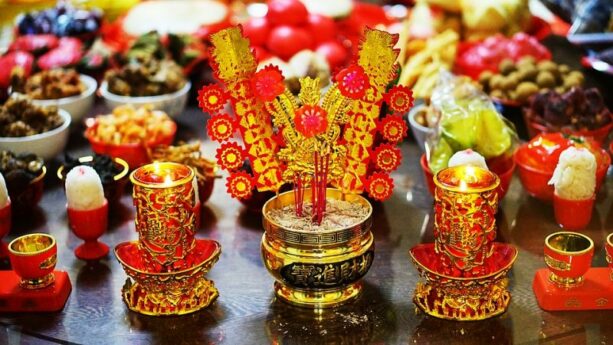

On the day
Finally, the Chinese New Year cannot start without the “年夜饭.” It is also known as the reunion dinner, for all family members to meet and talk about their stories. It is the best dinner of the year for everyone to come together and enjoy the rest of the Chinese New Year shows right after dinner.
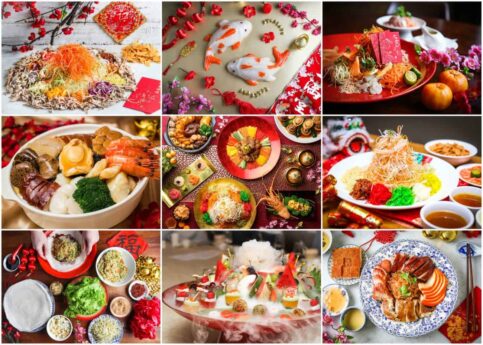

In my own experience, we will often choose a place to meet together to celebrate this day and enjoy a variety of dishes while talking to each other about the next year’s new goals and plans. I recall that as the best moment because that’s when every family member gets the chance to meet and have dinner. After the dinner, we will return back to the home and start watching the “春晚,”a traditional custom hosted by CCTV channel to perform a series of fun shows for all families to laugh and enjoy until midnight, which is our “跨年,” or in other words, crossing over from the past year to the new year. During this moment, most people send blessings to their friends, relatives, or other relationships to celebrate the festival and happiness together.
The customs before, during, and after the Chinese New Year have slightly changed for the younger generations, especially the group that cannot return to meet with their families. Sometimes they will prefer to have dinner and night parties outside, or have chats with their friends and families through the phones. Sometimes they may not watch the show but rather play games or enjoy other fun activities to wait until the Chinese New Year.
If you have a chance to experience the Chinese Year festival, you will understand more of why it is so important and meaningful in China or in Asia.
Happy Chinese New Year, and I wish everyone will continue to work hard and receive the best of luck throughout 2021!


Check out our Instagram to see how others in the Hult community are celebrating Chinese New Year.


